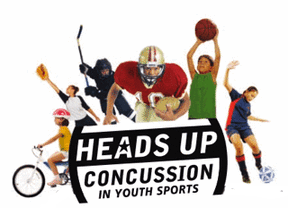 New research shows that the more people think they know about a topic, the more likely they are to state facts that are completely false — a process called "over-claiming," according to the study, published in Psychological Science. For the study, researchers designed a series of experiments to assess people's claims to knowledge, with the goal of seeing how people perceived their own knowledge. In one set of experiments, for example, researchers tested whether participants who believed they were experts in personal finance would be more likely to claim they knew about "fake" financial terms. One hundred participants were asked to rate their knowledge of personal finance in addition to noting how familiar they were with 15 financial terms. Most of these terms were real, such as inflation and home equity. But there were also made-up terms, such as "pre-rated stocks" and "annualized credit," which were intended to blend in with the rest. As the researchers predicted, those who believed they knew the most about finance were the most likely to claim they knew what the fake terms were. "The more people believed they knew about finances in general, the more likely they were to over-claim knowledge of the fictitious financial terms," said Stav Atir, study author and psychological scientist at Cornell University, in a statement.
0 Comments
 Some children recover more slowly from concussion and other types of traumatic brain injury because they have extensive damage to the protective coating around brain nerve fibers, a new study says. Researchers looked at 32 patients, aged 8 to 19, who had suffered a moderate to severe brain injury in the previous five months. The kids underwent tests to assess how fast they could process and recall information. The researchers also recorded electrical activity in the patients' brains to determine how quickly their brain nerve fibers could transmit information. And imaging scans assessed the structural condition of the youngsters' brain wiring. "Just as electricians insulate electrical wires to shield their connections, the brain's nerve fibers are encased in a fatty tissue called myelin that protects signals as they travel across the brain," Dr. Christopher Giza, a professor of pediatrics and neurosurgery at the University of California, Los Angeles, explained in a university news release. "We suspected that trauma was damaging the myelin and slowing the brain's ability to transmit information, interfering with patients' capacity to learn," he explained. Half of the patients had widespread damage to the myelin. They did 14 percent worse on the mental skills tests, and their brain wiring worked three times more slowly than healthy children. The other 16 brain injury patients had nearly intact myelin. Their brains processed information as quickly as healthy children, and they did 9 percent better on the mental skills tests than those with more myelin damage. The study, published in the July 15 issue of the Journal of Neuroscience, offers possible indicators that doctors could use to identify higher-risk brain injury patients who require closer monitoring, the researchers said. Traumatic brain injury is the single most common cause of death and disability in American children and teens, according to the U.S. Centers for Disease Control.
Shortly after Braylon was born, doctors amputated his lower legs to give him the best chance possible for mobility with the use of prosthesis. Today, Braylon has two sets of legs: One for walking and the other for running. Both allow the precocious and energetic youngster to play baseball, golf and other sports.
"We always talk about how he's special, not because his legs are different, but because of how he chooses to live his life with his legs," Kelli said. "And it's really that spirit, I think, at least as a mom, what makes him so special to us. And I think to others." His father, Mike O'Neill, said his son continues to teach him and others around them about putting things in perspective.
|
Disclaimer: This website is for informational and educational purposes.
Any and all blog content represents a synthesis of empirical information found on the internet, of my own personal opinions, and my professional experiences. Nothing posted reflects or should be considered professional advice. Interaction with me via the blog does not constitute a professional or therapeutic relationship. For professional and customized advice, you should seek the services of a licensed mental healthcare professional. I do not assume liability for any portion or content of material on the blog and accept no liability for damage or injury resulting from your decision to interact with the website. Archives
October 2023
Categories
All
|